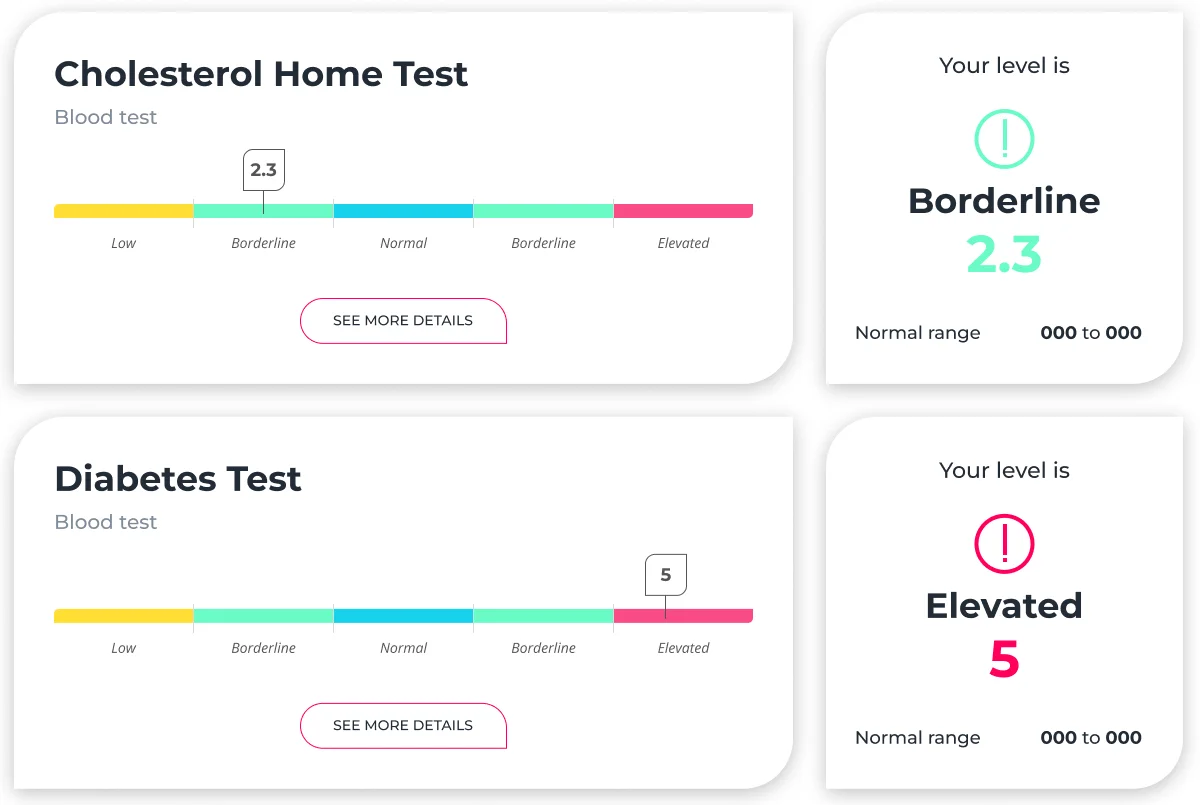.
A simple at-home test to see if you may be approaching, or have reached, the menopause.
- Convenient home sample collection kit
- Certified laboratory testing
- Detailed GP-verified report and advice
Is a Menopause Check right for you?
If you’re after a simple snapshot of your menopause status and guidance on what to do next, this test is for you. DocHQ Menopause Check will give you a clear answer about whether you may be approaching or have reached the menopause by screening Follicle Stimulating Hormone (FSH) levels, which rise as you near this time of your life.
Buy NowMenopause: Recognise the signs
There are more than 30 symptoms of menopause, the most common are:
- Irregular periods
- Hot flashes and sleep disturbances
- Decreased libido
- Mood swings
- Weight gain, hair thinning and dry skin

Who should test?
Menopause Check is recommended for women with:
- Menopausal symptoms under 45 years
- Atypical menopausal symptoms under 45 years
- Over 50 years using progesterone-only contraception

This test is not recommended for those taking Combined hormonal contraceptive pill and Hormone replacement therapy (HRT)
If you would like a more comprehensive analysis of your female hormone balance to better understand your menopause symptoms, please consider the MenoBalance Check.
How to get tested in 3 simple steps...
It’s quick and easy to test your blood at home, and receive a GP-verified online report within days


Step 1: Activate Kit
Create a DocHQ account and register your unique kit ID
Step 2: Take Sample
Collect a blood sample from your finger. Send the sample to lab using pre-paid postage
Step 3: Receive Results
Receive your detailed GP-verified online report with guidance and next steps
FAQ
Your common questions answered
What is menopause?
Are there limitations with using capillary home blood test kits?
Who should use DocHQ Menopause Check?
Menopause typically occurs in women aged between 45-55. However, it can occur earlier in women depending on their health and lifestyle. If you’ve begun to experience menopausal symptoms, we recommend using our test to determine if you are reaching or have begun menopause. We don’t recommend using our test if you are taking the combined hormonal contraceptive pill or hormone replacement therapy (HRT).
For women > 45 years of age with typical menopausal symptoms please consider a Menobalance Check if you would like a comprehensive analysis of your hormonal state to help determine if you are approaching, or have reached, the menopause.
How accurate is the Menopause Check?

Menopause Made Clear: Exploring Stages and Common Symptoms
Explore the stages of menopause, from perimenopause to postmenopause. Learn common symptoms and gain insights on managing wellbeing through lifestyle, stress management and regular check-ups.

How menopause affects the brain: Navigating menopause brain fog
Discover the impact of menopause on cognitive function, specifically brain fog. Learn about hormonal changes, causes, and effective strategies for managing symptoms.

Are Women in Menopause at Risk of High Cholesterol Levels?
Menopausal women face an elevated risk of high cholesterol due to hormonal and metabolic changes. Explore preventive measures, particularly the crucial role that regular health checks play.